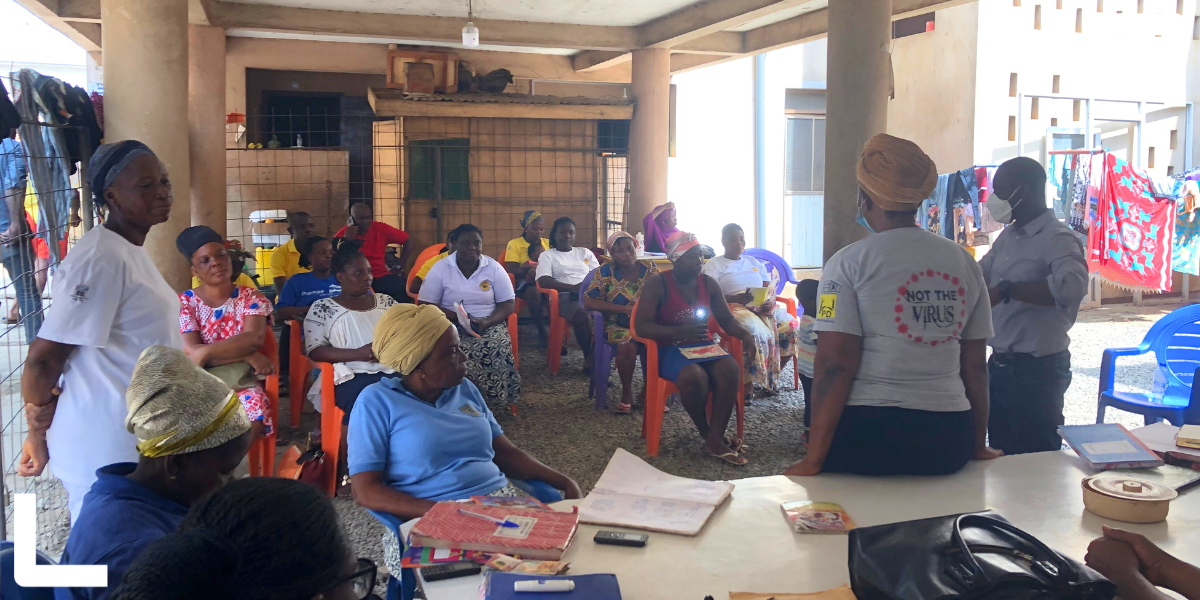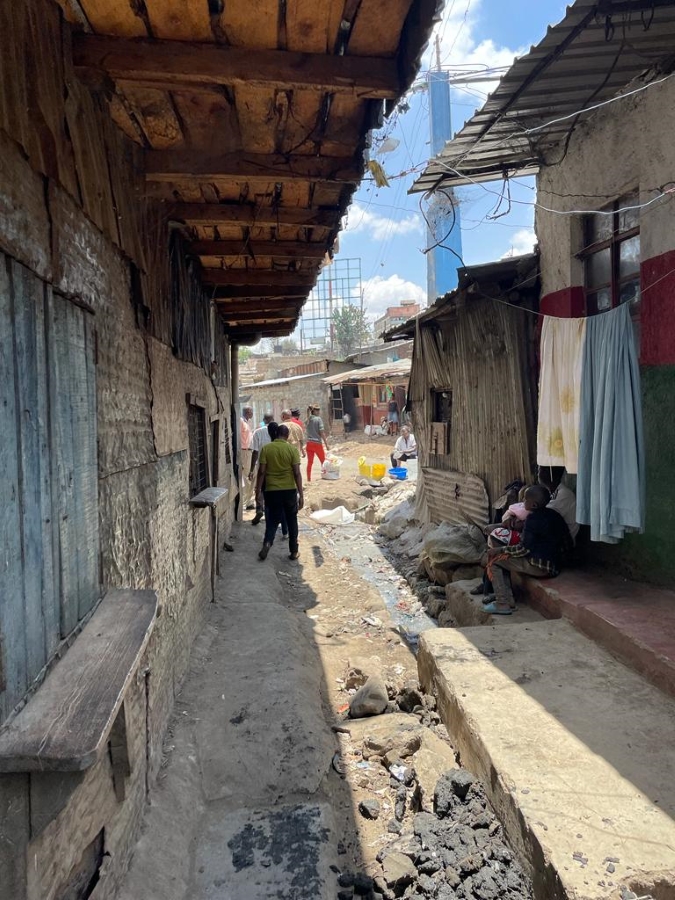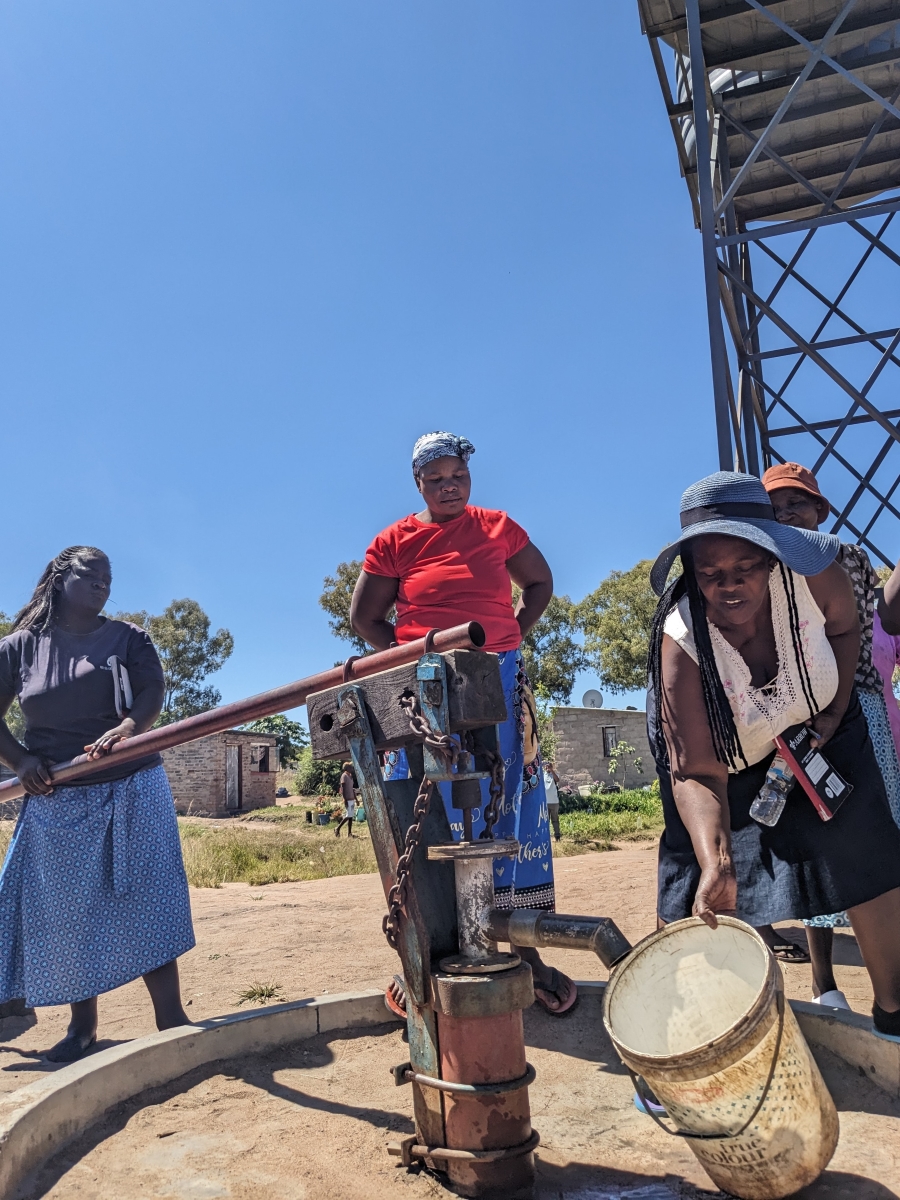By Diana Mitlin, CEO of the African Cities Research Consortium
Demands for equitable development partnerships are not new, but the Black Lives Matter movement has undoubtedly amplified calls for systemic change in the sector, which are making some progress. Conversations around decolonising development have stepped up, with many discussions across bilateral and multilateral donors, as well as the NGO sector.
In his recent UN address, UK Prime Minister Keir Starmer pledged to “change how the UK does things. Moving from the paternalism of the past towards partnership for the future. Listening a lot more – speaking a bit less… working together in a spirit of equal respect”.
This builds on the earlier recognition in the FCDO’s 2023 policy paper that “we need an offer based on partnership and mutual respect, giving leaders, communities and individuals a voice in shaping the solutions they want to see, rather than accepting the ones we think they need”.
Closer to our own work on urban reform, the Independent Commission for Aid Impact’s (ICAI’s) last review of UK aid for sustainable cities found that the “UK also has a good track record of supporting the incorporation of citizen voice into planning”. However, it also pointed out that the “ability of embassies and high commissions to deliver demand-driven and context-specific programming is also variable, given the overall shortage of specialist urban and infrastructure advisers”.
We were pleased that ICAI also recognised the FCDO-funded African Cities Research Consortium as a positive example of the leadership and involvement of African researchers and civil society organisations, as well our efforts to engage with city reformers and officials. While we appreciate this recognition, we are conscious that much needs to be done to maintain and develop it further.
In my own career, I’ve seen many examples of the injustices, missed opportunities and inefficiencies of “business as usual” development practices and research. As CEO of the African Cities Research Consortium, I have the opportunity to do something about it. This blog attempts to set out some of the critical issues and how we’re trying to address them.
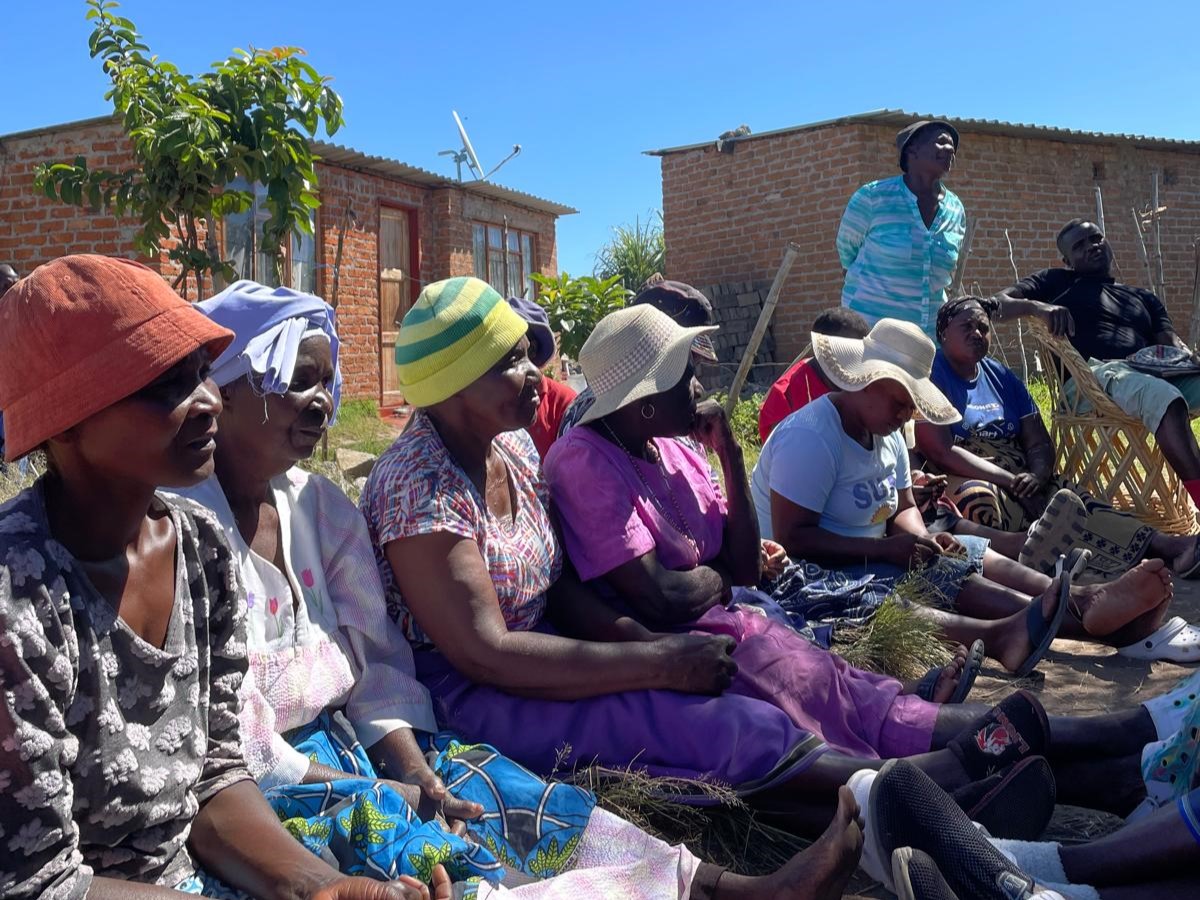
Meeting with members of the community in Tafara, a neighbourhood in Harare, Zimbabwe
Why is locally led development so important?
There is growing recognition that projects fail when local knowledge is not sufficiently incorporated. This can be seen in many different examples within communities. For instance, a water point being placed in a community next to the leaders’ house, which then ends up being controlled by that leader for their benefit, once the project finishes. Or houses being constructed without recognition of flood risk. Or support being given to certain microenterprises to strengthen their capabilities in tailoring or street foods, without acknowledging the plethora of other enterprises all competing for customers.
It can also be seen in research findings that “float” above local realities – often because the interviews were undertaken by researchers with insufficient knowledge to probe and challenge senior politicians, therefore failing to uncover the complexities of local processes.
Moreover, outcomes need to be fairer and to favour those who are the most disadvantaged. That is most likely to be achieved when disadvantaged people are themselves involved in decisionmaking. Improving representation of marginalised communities is important as a goal in itself – for equitable inclusion – and will help to make the development assistance system more effective in reaching those most in need.
What does development research get wrong?
Development research also needs to be more equitable – both as a principle and to enhance understanding, through combining multiple ways of knowing (via new methodologies) as well as generating new knowledge. Equitable research partnership requires changes in systems and processes. Success is less likely where local knowledge has not been adequately included and where relevant local lessons are not effectively shared. It is worth unpacking both of those statements.
In my experience, many research projects have given insufficient space to local researchers, even when there is a narrative about the significance of local contributions. The scale of their inputs is not sufficient and – potentially more significantly – they are not drawn into strategic planning.
Social science recognises that contextual knowledge is important. It is possible for externally located researchers to build up this contextual knowledge, but this cannot be done speedily. This is especially relevant when investigating the contested politics of development, including issues of justice, accountability and redistribution. It is knowing what question to ask, the way to ask it and the significance of the answer.
External researchers may also have a significant contribution to make. Experience has shown that they contribute in multiple ways; for example, through incorporating strategically selected experiences from elsewhere, and broadening potentially relevant theoretical and conceptual understandings.
A street in Mathare informal settlement in Nairobi, Kenya
On top of this, development research has also often failed to invest in local impact and uptake expertise. In urban development practice, lesson sharing takes place when knowledge is placed in the public or private domains by individuals who are locally respected and trusted by others, due to their shared lived experience. Findings or recommendations from outside are not received in the same way.
External messages may have a status because of the significance of the individual sharing the knowledge – for example, a famous US academic. Such outside validation may even help to reduce the risk officials face when adopting new ideas. So, when used strategically, external contributions may be significant. But local experts need to adapt this work to the local context and build reform coalitions to support new initiatives.
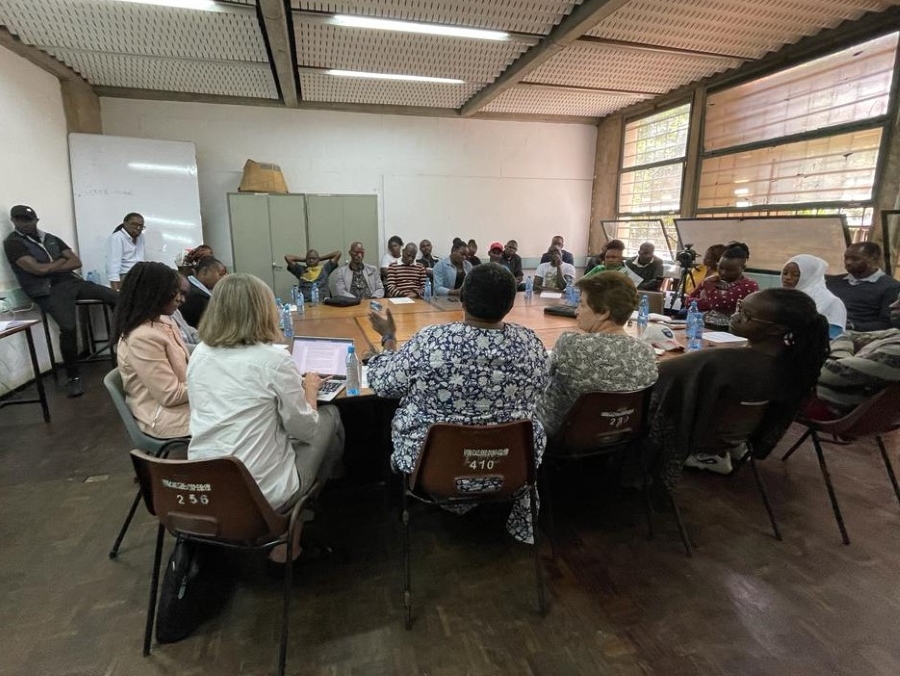
A meeting with ACRC team members and community representatives in Nairobi
The importance of community knowledge
The decolonisation of knowledge is often reduced to an issue between Northern and Southern academics. In reality, dysfunctional hierarchies often become engrained into all “academic” ways of working, resulting in community – or urban “indigenous” knowledge – being ignored or erased.
Community leaders know a lot about how change happens: who innovates, who blocks and where power lies. But, simply put, they are rarely asked to contribute this information. Even where they are engaged, community members can be nervous about the consequences of speaking out and realise their perspective may not appreciated. Such hierarchies can even encourage experts within the community to act as subservient, infantilising their potential.
In a blog published earlier this year, we set out the six key actions that ACRC is taking to make our approach more locally led and decolonial. Six months on, these are my initial reflections on progress.
> Foundation phase researchers
We have been broadly successful in our ambition to prioritise the intellectual contribution of African-based researchers. Building on established relationships and collaborations has been critical.
Experienced Africans working on issues of relevance to urban development and urban reform recognised the potential in ACRC and added considerable value immediately. In some cases, we could not identify someone with such seniority, and we have worked with early career African researchers. In terms of gender balance, we initially struggled to recruit equal numbers of male and female researchers, but have become more successful over time.
Tafara residents demonstrate how to use the community water pump
> Implementation phase city managers
With respect to the leadership of African-based implementers for ACRC’s action research phase, we have been successful in two respects. First, our Africa-based city managers are a talented bunch, with decades of experience in managing urban reform, including programming and policy initiatives. We have decentralised budgets, nurtured local advisory processes and established a co-development approach to ensure that proposals are emerging from those best able to judge how to move forward the urban reform frontier. Second, our individual action research projects are being led by a wider range of researchers, academics, NGOs and community organisations, all embedded in the cities in which we are working.
While we are still very early in the implementation phase, we are delighted with progress so far. There have been no substantive difficulties in ensuring we meet the required standards for due diligence; we have to navigate the requirements from both FCDO and The University of Manchester. We may draw in appropriate Northern expertise as African project leaders identify capabilities that are not available locally.
> Community knowledge
Finally, we are continuing to invest in community knowledge by setting up a community research team in each city and embedding these teams within action research projects. We have made efforts to ensure that the community research team is comprised of predominantly grassroots researchers, with a small professional component to enable their effective integration into learning and knowledge development processes. We are also keen to build the analytical capabilities of the community researchers, to enable them to move beyond being data collectors.
This has been the trickiest element to get right. There are no existing modalities that we can ask researchers to adopt – although there are some useful tools. We are asking academics to acknowledge their need to work in more participatory ways, and to innovate when doing this.
Community researchers are frequently hesitant to demand inclusion because their previous experience in education has trained them that they do not have a leadership role in knowledge development – although they are keen to engage when offered space. The ways in which professionals and academics support this process is critical. It is easy for them to dominate the process, and in so doing prevent capabilities from being enhanced.
As peer-to-peer learning enables effective tools and methods to be strengthened and grassroots voices to be amplified, then we hope that we will be able to develop, articulate and demonstrate the significance of their contribution.
Photo credits: Chris Jordan, Diana Mitlin. Header photo shows a community meeting in Accra, Ghana.
Note: This article presents the views of the authors featured and does not necessarily represent the views of the African Cities Research Consortium as a whole.
The African Cities blog is licensed under Creative Commons Attribution-NonCommercial-NoDerivatives 4.0 International (CC BY-NC-ND 4.0), which means you are welcome to repost this content as long as you provide full credit and a link to this original post.

